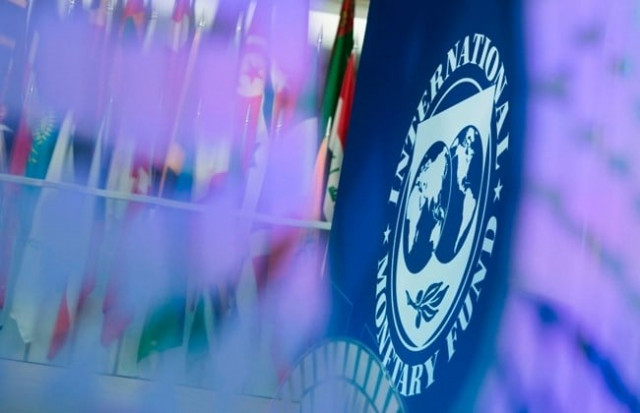Talks to revive $6 billion IMF package next week
During recent interactions, the IMF conveyed that Pakistan would have to increase power tariffs

Pakistan and the International Monetary Fund (IMF) are set to resume talks for the revival of a $6 billion derailed programme next week, in which both the sides would try to find a middle ground on the contentious issue of increase in electricity prices.
The five-day round of technical discussions will virtually begin on October 4, with the IMF team joining from Doha, Qatar. Sources said that Finance Minister Shaukat Tarin was keen to conclude the parleys on a positive note during face-to-face meetings with the top IMF management in Washington on October 15.
The IMF has not yet shown its willingness for the face-to-face meetings and instead proposed virtual meetings for October 13 to 15. Therefore, the schedule of the policy-level talks remains tentative and it will be finalised next week, according to finance ministry sources.
The policy level talks are coinciding with the annual IMF-WB meetings that will take place from October 11 to 17th. The Pakistan’s embassy in Washington and the State Bank of Pakistan (SBP) governor are trying to get dates from the IMF top management for a physical meeting.
The finance ministry did not respond to a question whether the October 13-15 round in Washington would also be held virtually. The ministry also did not respond to another question regarding Pakistan’s request for a meeting with the IMF managing director.
Finance Minister Tarin has already announced that he would visit Washington from October 12 to 17 to hold talks with the top IMF management on the sidelines of the annual meetings.
The sources said that during recent interaction, the finance ministry showed some leniency in accepting the IMF’s demands, as the four-month deadlock in talks was proving costly for the government, which is heavily dependent on the foreign loans to remain afloat.
One indication was that the finance minister, who had not met the local IMF staff, held a long meeting with the Resident Representative Teresa Daban two weeks ago. But they said that the real test will be during the policy-level talks over the questions of increasing electricity prices, reducing the circular debt and the central bank autonomy.
The sources said that IMF’s local staff also wanted to revive the programme and recently hinted at giving some space to the government, subject to the condition that it was also provided face saving.
The IMF resident representative is completing her stint in Pakistan next month and would be replaced by Esther Ruiz, who was on a week-long introductory visit to Pakistan.
The successful conclusion of the talks would facilitate immediate disbursement of $1 billion by the IMF.
READ IMF asks govt to do away with subsidies
Pakistan and the IMF had signed the $6 billion deal in July 2019 but the programme was derailed in January 2020 and restored briefly in March this year before again going off the track in June. From June to August there were no serious discussions between the two sides.
Another crucial question that will be decided in the coming two weeks is whether Pakistan wants to exit from the IMF programme at its original schedule of September 2022 or it needs extension to get the remaining $4 billion loan.
So far, the inclination is that the government wants the IMF to advance the disbursement calendar and increase the size of the loan tranches. Pakistan has budgeted over Rs400 billion or $3.1 billion from the IMF in this fiscal year and its disbursement is only possible with the completion of the remaining reviews.
The sources said that there was also some back paddling on the state-owned enterprises law on the part of Pakistan, which is creating confusion in the IMF circles.
During recent interactions, the IMF conveyed that Pakistan would have to increase power tariffs, as the staff could not budge from its position taken before the management and the IMF board.
In June this year, Tarin told a parliamentary committee that there were two outstanding issues of introducing Rs150 billion worth of personal income tax and Rs4.95 per unit increase in electricity prices. Tarin said the IMF had demanded that the government should increase Rs1.39 per unit price in June and Rs3.56 per unit in July.
The PTI government has already increased the average power tariff by over 40% or Rs4.72 per unit to Rs16.44 in the last three years, according to the energy ministry. Tarin said on Friday that the government would put other proposals before the IMF instead of only relying on tariff increase.
The power sector circular debt has jumped to Rs2.324 trillion as of July 31, 2021, which is more than double as compared to three years ago, despite increasing electricity prices.
The assessment of Pakistan’s gross financing needs was another critical area amid a 373% increase in current account deficit during July-August this year as compared to the same period of the last year.
The IMF would also like to see fiscal and monetary tightening policies to be adopted by Pakistan to reverse the increase in public debt and external sector stability.
The finance minister wants to attain a growth rate of over 6% but the government is now considering a sustainable economic growth rate to avoid a repeat of the 2017-18 situation.
Both the sides will also hold Article-IV discussions, which are broader in scope and will allow the IMF to have a detailed review beyond the scope of the conditions agreed for the 6th review of the economy, the sources added.
The last Article-IV review had been completed in 2017, which had heavily focused on Pakistan’s economic and commercial ties with China in addition to gauging the future stability of the economy.



















COMMENTS
Comments are moderated and generally will be posted if they are on-topic and not abusive.
For more information, please see our Comments FAQ